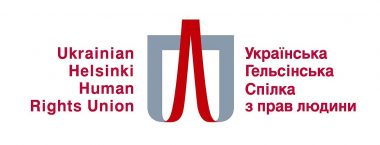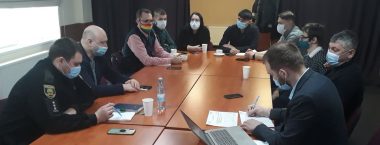
Action Plan for Implementing the Strategy for the Deoccupation and Reintegration of Crimea. What has changed?
On April 4, 2023, the Cabinet of Ministers of Ukraine (CMU) approved Order No. 288-r,...
03 May 2023
THE LAW ‘ON AMENDMENTS TO THE CODE OF CRIMINAL PROCEDURE OF UKRAINE’ OF JANUARY 16, 2014 (DRAFT LAW № 3587)
The provisions of this law undermine the foundations of the criminal justice system whose cornerstone is the ability of a person to attend his/hertrial.
In the practice of the European Court of Human Rights, an individual accused of criminal offence has a right to attend his/her trial.Although trial in absentia as such does not contradict Article 6 of the European Convention on Human Rights, it will definitely mean denial of justice, if a person convicted in absentia has been denied an opportunity of retrial unless this person has waived his/her right to attend the trial and defend him/herself or intended to evade justice (Sejdovic, 81-82).
Grounds for criminal trial in absentia, as provided for by Article 523-1 of the Code of Criminal Procedure, such as when a person ‘has again failed to appear for pre-trial investigation or in court without valid excuses or failed to notify of such excuses, or those excuses were considered invalid’, cannot be considered as an evidence of unconditional waiver of the right to attend the trial.According to the European Court the ‘waiver of the rightmust be established in an unequivocal manner and be attended by minimum safeguards commensurate to its importance’(Sejdovic, 86).
The Law does not provide sufficient safeguards for persons convicted in absentia to initiate retrial.
In fact, the Law creates a situation when failure to attend the trial makes it possible to eliminate the fundamental safeguards of a fair trial. It is worth mentioning that in a number of cases even the evasion of trial does not mean unequivocal waiving of justice safeguards. Evasion of trial occurs frequently in criminal justice. That is why a set of precautionshave been established by law. And this set of precautions becomes unnecessary if a failure to appear in court would in any caselead totrial and conviction in absentia.
THE LAW ‘ON AMENDMENTS TO THE LAW OF UKRAINE‘ON THE JUDICIAL SYSTEM AND STATUS OF JUDGES’ OF JANUARY 16, 2014 (DRAFT LAW № 3869)
Peaceful assembly
This law introduces a number of restrictions on peaceful assembly and, in fact, transforms notification-based procedure of conducting peaceful assembly stipulated by the Constitution of Ukraine into anauthorization-based one. A great number of items essential for conducting peaceful assembly such ascloths, installations that could be used as a stage, sound-amplifying equipment now require an appropriate permit of the Interior. At the same time, the Constitution of Ukraine stipulates that peaceful assembly can only be banned by a court,whichmeans that any restriction with regard to the form of such assembly can only be imposed by a court.In a different interpretation,the Constitutional provision loses its meaning and becomes a merely illusory guarantee of the right to freedom of peaceful assembly.
Trial for contempt of court
Amendments concerning trials for contempt of court were introduced to a number of procedural codes.According to these amendments, a court that became subjectto such contempt is empowered to pass a corresponding ruling.This is a clear violation of the right of defendant to a fair trial.
As this offense is punishable by an administrative arrest, conviction of this offense is criminal according to Article 6 of the Convention on Human Rights and Fundamental Freedoms, and therefore has to involve all safeguards inherent to a criminal trial.The right to independent and fair trial, the right to have adequate time and facilities to prepare his/her defense,the right to an attorney and other rights areviolated by these amendments.
Ukraine has lost a number of cases in the European Court of Human Rights as a result of quickhearingson administrative offenses, which resulted in total violation of all safeguardsof an accused person (see verdicts on the cases of Verentzov, Kornev and Karpenko). In addition, the Law directly rules out the possibility to appealagainst court ruling thatconstitutesa violation of the right guaranteed by Article 2 of Protocol 7 of the European Convention on Human Rights.Surely, these amendments will result in numerous violations of the European Convention on Human Rights and a great number of the European Court’srulings against Ukraine.
Extremist Activities
Introduction of Article 110-1 ‘Extremist Activities’ into the Criminal Code does not add any additional meaning to criminal defense as such.
For instance, Article 110-1 definesthe following as an ‘extremist’information: ‘calling on, substantiating or justifying a need to take any actions required to plan, organize, incite, prepare or commitany violent activities in order to change or overthrow constitutional order, encroach on the territorial integrity, immunityand sovereignty of the state, usurp or retain power or authority.’
But such actions are provided for in Articles 109, 110 and some of the Criminal Code articles, which provide for complicity in such crime.
The rest of the ‘extremist’informationdefinition carries the danger of excessively broad interpretation,whichmaylead to violation of the freedom of expression.Most of discussions on socially important themes can be interpreted as spreading‘extremist information.’Combined withamendments introduced to Article 4 of the Law of Ukraine "On Public Associations" thisendangers any public activity.
According to the European Court of Human Rights’ definition, freedom of expression constitutes one of the essential foundations of a democratic society and one of the basic conditions for its progress and for each individual’s self-fulfillment. Subject to paragraph 2 of Article 10, it is applicable not only to ‘information’ or ‘ideas’ that are favorably received or regarded as inoffensive or as a matter of indifference, but also to those that offend shock or disturb. Such are the demands of pluralism, tolerance and broadmindedness without which there is no ‘democratic society’. As set forth in Article 10, this freedom is subject to exceptions, which must, however, be construed strictly, and the need for any restrictions must be established convincingly (cf., Jersild v. Denmark, judgment of 23 September 1994, Series A no. 298, item 31).
Criminal penalty in the form of incarceration or restriction of liberty for dissemination of information is an obvious disruption of balance between the right to freedom of expression and restrictions as may be imposed by the state for such freedom.This imbalance is exacerbatedby very vague definitions.
Re-criminalization of slander means continuing restriction of the freedom of expression. Ukraine has already lost a number of casesrelated to criminal liability for slander (Salov v. Ukraine, no. 65518/01, Lyashko v. Ukraine, no. 21040/02 of August 10, 2006). Restoration of almost identical provisions in the current Ukrainian legislation will lead to totally predictable violations of the right to freedom of expression.
The law has introducedsubstantial restrictions on the freedom of information.In fact, on the basis of a singleopinion of an unknown expert, a person may be limited in obtaining information via the Internet.The legislation, although allowing to appeal against restrictions of access to information, places the burden of initiating the appeal as well as proving the fact of such restriction and its baselessness on the concerned individual.Given the nature of the restriction, this burden could be excessive in most cases.
Restrictions on the activities of the civic organizations
The new law has introduced discriminatory modifications to the Law ‘On civic associations’and to the Tax Code of Ukraine, putting organizations in an unequal situation based on their funding sources.
Even if we neglect the illiterate usage of the term ‘foreign agent’, which was meant to provoke negative feelings among the public regarding the activities of the civic organizations, the law contains serious setbacks, which will lead to an arbitrary application.
Also, the law contains a series of terms, such as ‘political activity’, ‘political action’, that will allow for an arbitrary application of the law to organizations engaged in ordinary civic activities. The practice of application of such norms in the Russian Federation highlights this very trend toward an arbitrary interference in the activities of the civic groups.
For instance, in Russia courts attributed to ‘political activity’ the drafting of an alternative report by a human rights group for the Committee against Torture. Some organizations have been punished for an attempt to draft proposals on modifications for the electoral legislations. Drafting proposals on the police reform has also led to accusations in engagement in ‘political activity’.
As these legal norms have been borrowed from the Russian legislation, obviously there is an intention to borrow the regulatory compliance practice from the same source as well.
THE LAW OF UKRAINE ‘ON THE ELIMINATION OF NEGATIVE IMPACTS AND PREVENTION OF PROSECUTION AND PUNISHMENT OF PERSONS WITH REGARDS TO EVENTS THAT TOOK PLACE DURING PEACEFUL ASSEMBLIES’
The law, among other things, relieve from liability officials, who may be complicit in a crime. This, in particular, covers the relief from liability for crimes stipulated in Article 365 of the Criminal Code of Ukraine, but is not limited to this article (for instance, relief from liability may apply to officials who may have been involved in ‘any type of interference in the activities of the judge with the purpose to prevent him from performing his official duties or compel to pass an unjust ruling’ (Article 376 of the Criminal Code).
In some cases, such legal provisions may make it impossibleto put to justice officials whose actions may be viewed as torture or brutal treatment. This is in direct in contradiction with the state’s obligation to conduct an efficient investigation of every case of torture or brutal treatment that could lead to the incrimination and punishment of the guilty parties.
Obviously, the application of this law will lead to a massive and systematic violation of Ukraine’s international obligations and will deepen the problem of impunity among the law enforcement, which over the years many observers identified as a systematic problem in Ukraine.
If you find an error on our site, please select the incorrect text and press ctrl-enter.

On April 4, 2023, the Cabinet of Ministers of Ukraine (CMU) approved Order No. 288-r,...
03 May 2023

Scheduled presidential election in the Republic of Belarus on 9 August 2020 resulted in a...
16 April 2021

What is the difficulty with ensuring security during peaceful gatherings of the LGBTQ+ community? What...
24 February 2021

On February 19, 2021, an event entitled “Security during LGBTQ+ peaceful gatherings” took place in...
21 February 2021